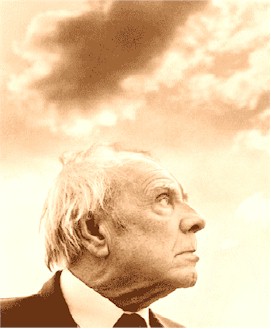This world needs Michael Moore.
If you want to learn about how an individual community can be destroyed by an economic crisis, and about how badly the powers-that-be can behave when faced by the same thing, you can do no better that to watch
Roger and Me.
If you have any doubts about the way the gun-loving cult takes advantage of personal tragedy and plays on fear and prejudice, you need to see
Bowling For Columbine right away.
And there's no better account of the idiocy of the current administration than
Fahrenheit 9/11.
But as much as I admire Moore's earlier films, I don't think any of them completely prepared me for his latest
Sicko, a populist epic that needs to be seen by anybody who has or will find themselves lost in the health care morass of this country.
I can't imagine that anyone needs to be told that health insurance is a complicated, expensive, frustrating and time-consuming mess, and I initially thought that the idea of a film on the subject would be just as tedious as two hours of filling out forms and haggling over deductibles.
I was wrong. For the first 30 minutes,
Sicko had me cringing and seething. And by the end, I was in tears. (Which is strange, really, because it actually ends with a pretty good joke...)
Moore's film is to a large degree a surprisingly warm and optimistic proposal about health care that really
works: Patients getting reliable, affordable treatments. Doctors who are more concerned with their patients condition than their coverage (and even make house calls).
The problem is that Moore has to go a little bit out of his way to find these examples. Not just out of the way, but out of the country. To Canada. To England and France. To Cuba.
(It's that last leg of the trip, of course, that will most likely give folks an excuse to trash the film without addressing any of the issues it raises.)
It is hardly news that Moore has a gift for provocation, but what will stun people about
Sicko most of all is that he has abandoned or at least seriously reined in much of his usual arsenal of tricks and tactics, the very things that have so frequently divided his critics. The big goofy innocent persona developed so skillfully in the opening segment of
Roger and Me has become a quiet patient observer. The ambush interviewing tactics that have made some of his subjects call him unfair are absent. Even the offbeat, even whimsical sense of irony is held in check (though you have to give him credit for an ingenious use of the classic Serge Gainsbourg record "Je t'aime..moi nom plus".)
And strangest of all,
Sicko is a film in which Moore has no real enemies to track down. Where his previous films have delighted in confronting bureaucrats, humiliating stuffy corporations and exposing hypocrites of every stripe, one gets the sense that here Moore has, of necessity, found a different way of looking at things. Yes, the insurance companies can be evil and Hilary Clinton made a mess of things, but Moore has found a bigger picture. He's critical of health industry abuses but more impressed by the idea that, with enough public support, health care could be made to work.
And that may be the thing that will drive Moore's enemies - the ones just waiting to leap out at the first misstep - absolutely nuts. (There are a lot of professional Moore-haters out there, one of which actually the subject of a surprising turn near the end of
Sicko). Because unlike corporate greed, gun control or the Iraq War, Moore's film isn't about taking sides. We will
all get sick, have accidents or produce babies, and
Sicko is a powerful look at how we have gone about doing (and paying for) those things - and how we could do a lot better.
See
Sicko immediately.
Visit Moore's
website.
And be grateful that we have filmmakers/muckrakers/citizens like him.
(Update: 6/28/07. This review - really just a spontaneous outburst immediately after seeing the film - can also be found
here at
Playback. Thanks guys!)




